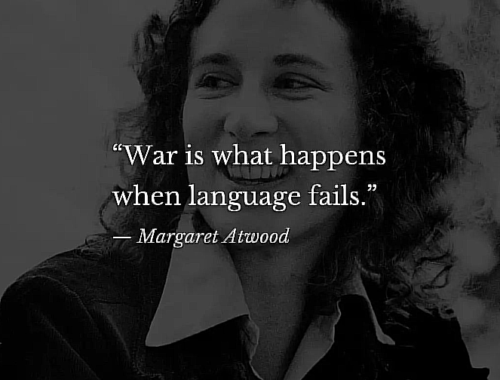
Bridges and Stories Take Us Where We Need to Go
I had to stop reading the book before bed. Even though it was my second race with Bridge of Clay, and I knew what to expect, I couldn’t take any more of the nights with too little sleep. It wasn’t just the book, not always, but far too often, I’d wake at 2:00 or 3:00 and immediately be thinking about Clay and Carey, or Michael and Penelope, Matthew: as if I was just picking up where my dreams had left off, even though I could remember no dreams.
I thought that Markus Zusak’s latest novel had me entranced the first time around, but no, with nothing to go on but words that came one after another, I could follow the story, but I couldn’t really understand what he was telling me, not like this time. Knowing, now, from the beginning, what Matthew and his brothers Rory, Henry, and Tommy did not know about their brother Clay made every sentence more important, every image more poignant, every page slower to turn.
Matthew is the storyteller, and Zusak’s choice of narrator is always important. Remember when Death told the story of The Book Thief? Matthew is the oldest, about 30 when he drives for hours and hours through Australia to dig up the typewriter his father had buried in a distant backyard decades before. Matthew had just gotten married, has two daughters of his own, and Clay’s story needs to get typed up and transmitted. Long ago, The Iliad and The Odyssey, two epic stories that weave their way through Clay Dunbar’s story, were spoken over and over before finally getting written down, but we don’t live that way anymore. Maybe we should.
Matthew quit high school and has worked for decades as a flooring installer. He can tell a story, but he’s not going to do it like he’s writing a high school essay or a college thesis. He tells his own way, with the past and present taking turns, chapter by chapter. Details filled in when necessary, but certainly not a Point A to Point B, Start-Go-Stop sort of narrative. Matthew makes you pay attention and work for the pay-off, and the pay-off rattles you. It sticks with you and makes you question things you thought you would never doubt.
Penelope grew up behind the Iron Curtain and defected when her father gave her no choice and little notice. The two paper parcels he had hidden in her suitcase for a trip abroad to showcase her mastery of the piano contained The Iliad and The Odyssey in English, because he was sure she’d someday be able to read in that language, and he was right. Penny ended up in Australia, and her father’s death in a locked-up land faraway, along with a piano like the one he had taught her to play on, led her to Michael Dunbar, an artist still reeling from a marriage that had ended years ago. Penny and Michael would create the tale that creates the Dunbar boys, and of the five, none would suffer the way Clay does, and all before he even turns 18.
Like I said, Clay’s brothers had only so much to go on, because they didn’t love their mother’s stories the way Clay did. They wouldn’t dry dishes or do extra chores in exchange for a chance to lay their heads in their mother’s lap and listen. Their father’s stories, too, never meant much to anyone but Clay, and, as he told Carey, he remembered everything. What’s more, the other Dunbar boys were generally content with what they did know, seldom asking questions that might disturb the fragile equilibrium they had managed to construct for themselves.
When he read it, he dropped to a crouch.
He smiled hardest at the last part, and our brother lay down, cheek-first on the ground, and he stayed there alone a long time. He cried silently, nearly an hour—
And these days, so often, I think of it, and I wish that I just could have been there. As the one who’d be next to beat him up, and bring him down, and punish him hard for his sins, I wish I’d somehow known everything.
I’d have held him, and quietly told him.
I’d have said to him, Clay, come home.
But Matthew didn’t know at the time. Only Michael, but he didn’t quite know everything, and his own demons had beaten him up too often.
I think whenever I’ve shared a book I love with someone else, I was always hoping they’d read it and understand: understand why I loved it, why I wanted them to know what I knew about these characters and these lives they led, why I had needed this book in my life. Zusak’s book was important to me once before, but it’s so much more now, just like Clay’s story became for Matthew and Michael and the rest of the brothers; Carey and Claudia, too.
A few years ago, I bought a copy for my sister: on Kindle, I imagine. It doesn’t matter; she loved the story, too, and she loved that I had shared it with her. Never underestimate how important that is. Penelope told the stories over and again, Matthew does now, too. Yes, we all should, and we should listen: with our ears and our eyes, our hearts, and our souls.
—Some of you may have seen this over at English Major Heretic, where I and other (you, perhaps?) write about books that are meaningful to us.




